In January 2024, a significant chapter in the history of religious worship in Dubai will come to a close. The iconic Sindhi Guru Darbar temple complex, a spiritual sanctuary for 75 years, is set to permanently close its doors to worshippers. This monumental transition will reshape the religious landscape of Bur Dubai, with worshippers being directed to the new Hindu Temple in Jebel Ali, which opened its doors just last year.
Join us on a journey through time and tradition as we explore the rich history of the Bur Dubai temple complex, the reasons behind its closure, and the bright future awaiting worshippers at the new Hindu Temple in Jebel Ali.
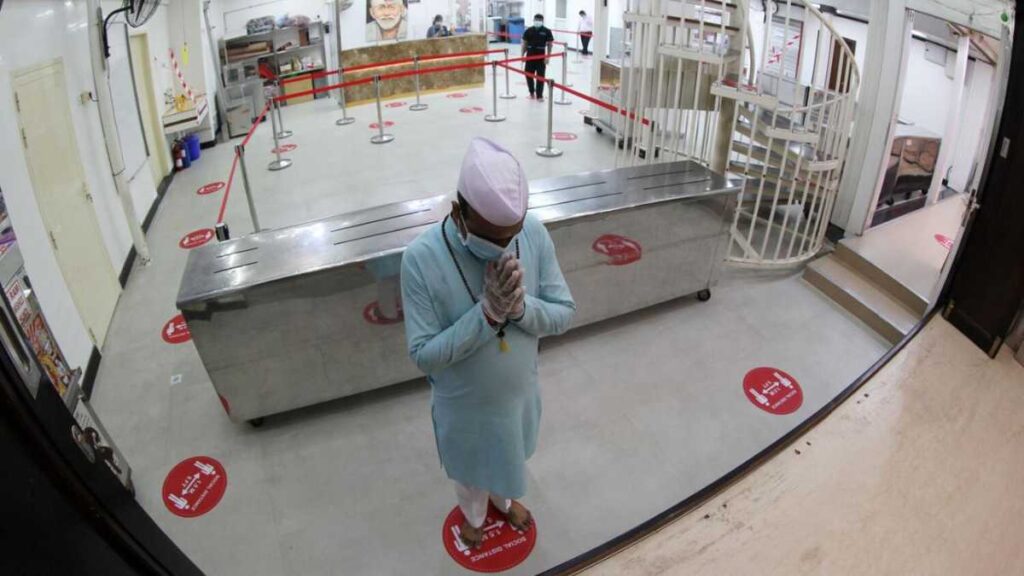
The Legacy of Sindhi Guru Darbar
Situated in the heart of Bur Dubai, the Sindhi Guru Darbar temple complex has been a pillar of spiritual devotion and cultural heritage for generations. Established in 1958, this complex has provided a sacred space for worshippers of various faiths.
- A Haven of Spirituality: For decades, the Shiva Mandir within the complex has served as a spiritual haven, attracting devotees from near and far.
- Cultural Diversity: The Gurudwara within the premises has promoted cultural diversity and interfaith harmony, embodying the essence of Dubai’s inclusive ethos.
The Decision to Close
The decision to close this historic complex did not come lightly. Vasu Shroff, the head of the committee overseeing the complex, sheds light on the reasons behind this monumental change.
- Overwhelming Congestion: With approximately 5,000 visitors over weekends and a staggering 100,000 during festivities, the Bur Dubai temple often struggled with overcrowding.
- A New Beginning: The temple management sought government approval to build a new temple in Jebel Ali, paving the way for a fresh start.
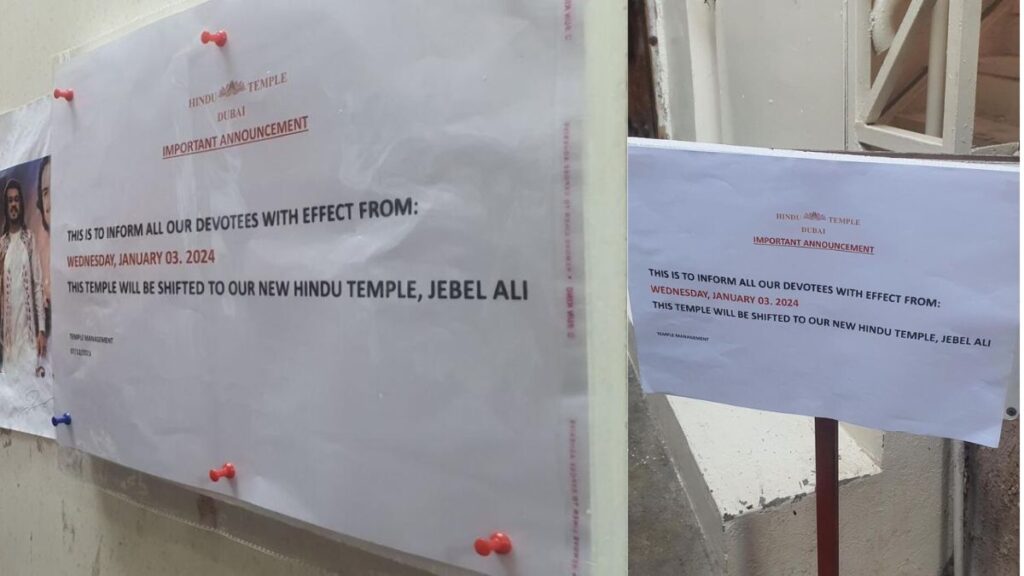
A Glimpse into the New Beginning
Starting from January 3, 2024, the 60-year-old Hindu temple in Bur Dubai will begin a new chapter at its new location in Jebel Ali. This shift promises a range of benefits and opportunities for worshippers.
- Spacious Surroundings: The new temple in Jebel Ali offers a spacious and serene environment, conducive to peaceful worship.
- Enhanced Facilities: State-of-the-art facilities and improved management will enhance the overall worship experience.
- Community Engagement: The temple will continue to serve as a hub for community engagement and cultural exchange.
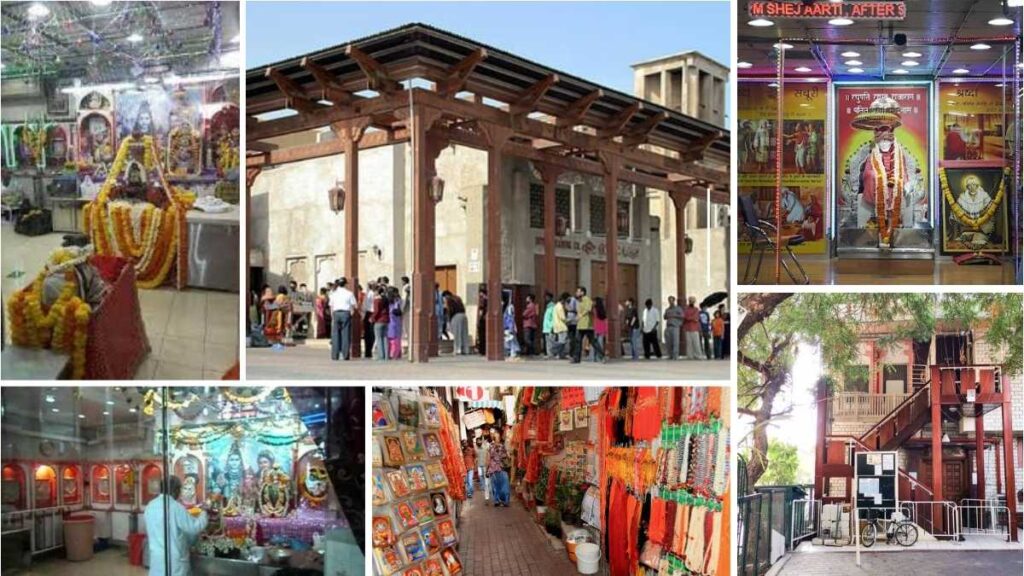
FAQs About the Transition
- Why is the Bur Dubai temple complex closing?
- The closure is due to overwhelming congestion and the need for a more spacious and manageable space.
- Where is the new Hindu Temple located?
- The new Hindu Temple is located in Jebel Ali, offering a fresh and improved worship experience.
- Will the Gurudwara be part of the new complex?
- No, the Gurudwara will not be part of the new temple complex; it will remain a separate entity.
- Are there any additional services or facilities at the new temple?
- Yes, the new temple in Jebel Ali will offer enhanced facilities and services for worshippers.
- What will happen to the old temple complex in Bur Dubai?
- The fate of the old temple complex is yet to be determined, and discussions regarding its future use are ongoing.
- Is there a specific reason for choosing Jebel Ali as the new location?
- Jebel Ali was chosen for its spacious surroundings and the opportunity to build a modern temple facility.
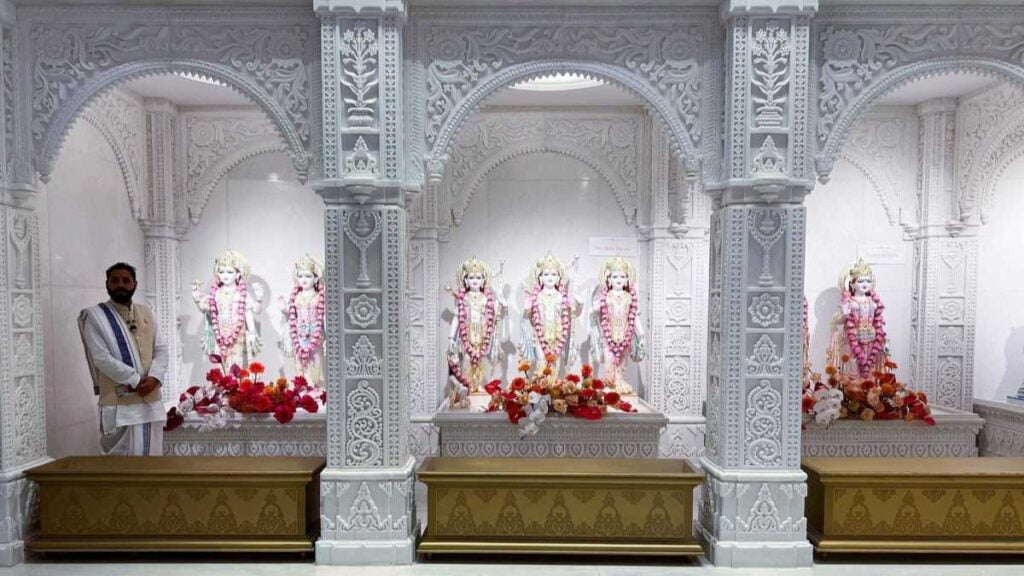
As the Sindhi Guru Darbar temple complex in Bur Dubai prepares to close its doors, it leaves behind a legacy of spiritual devotion and cultural diversity. The transition to the new Hindu Temple in Jebel Ali signifies a new beginning, offering worshippers a more spacious and enriching worship experience.
While change can be daunting, it also brings the promise of growth and improvement. As we bid farewell to an iconic landmark, we look forward to the continued flourishing of spiritual traditions in the vibrant city of Dubai.
Contact and Location of New Temple
Phone: 056 501 8951/ 050 659 8369 | hindutempledubai.com
The Heart of Bur Dubai: A Historical Overview
The Sindhi Guru Darbar temple complex, housing the Bur Dubai Shiv Mandir and the Gurudwara, has been more than just a place of worship. Established in 1958, it has stood as a testament to the enduring spirit of faith and community in the heart of Dubai. This temple has not only provided a spiritual haven for thousands but also served as a cultural landmark, deeply intertwined with the history of Bur Dubai.
The Early Days: Establishing the Temple
In the bustling lanes of Meena Bazaar, the Shiva Mandir complex first opened its doors, laying the foundation for a spiritual journey that would span over six decades. The temple’s inception was a response to the growing need for a dedicated space for worship and community gatherings among the Hindu population in the area. Its establishment marked a significant milestone in the cultural integration and religious expression of the Hindu community in Dubai.
Cultural Significance Over Decades: Over the years, the temple complex became a beacon of Hindu culture and tradition. It played a pivotal role in preserving and promoting cultural heritage, offering a slice of home to the expatriate community. The temple’s significance transcended religious boundaries, becoming a symbol of unity and cultural diversity in Bur Dubai.
The Temple’s Role in Community Life: The temple complex has been more than a place of worship; it has been a vibrant centre for community life. From regular prayer services to grand festive celebrations, it has been a hub of activity, drawing people from all walks of life.
Festivities and Footfalls: A Hub of Activity: During major Hindu festivals like Diwali and Navratri, the temple would come alive with lights, music, and a flurry of activities. These events were not just religious observances but also social gatherings, strengthening community bonds and showcasing the rich tapestry of Hindu culture.
Challenges of Managing Crowds: However, managing the influx of devotees, especially during festivals, posed significant challenges. The temple’s limited space often struggled to accommodate the swelling crowds, leading to congestion and logistical difficulties. This highlighted the need for a larger, more accommodating space, eventually leading to the decision to relocate to Jebel Ali.
Transition to Jebel Ali: A New Chapter: The decision to move the temple services to Jebel Ali marks a significant shift in the temple’s history. This move is not just a change of location but a step towards accommodating the growing needs of the community in a modern setting.
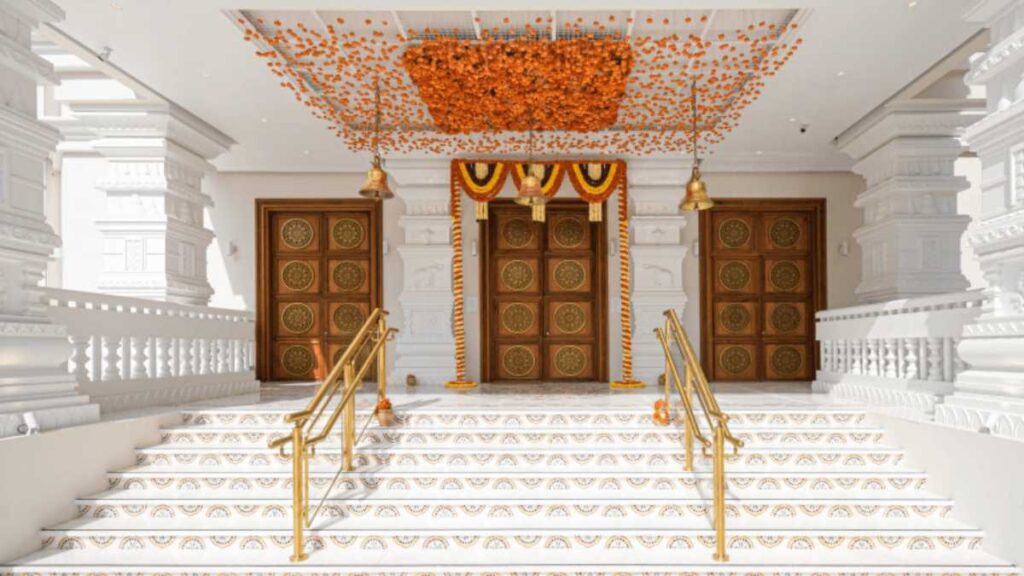
The Decision to Move: Insights from the Committee
Vasu Shroff, the head of the committee that runs the complex, played a crucial role in this transition. The decision was made after careful consideration of various factors, including the need for more space and better facilities to serve the growing Hindu community in Dubai.
Jebel Ali’s New Hindu Temple: A Modern Sanctuary: The new Hindu Temple in Jebel Ali is envisioned to be a modern sanctuary that respects traditional values while embracing contemporary needs. It promises to be a state-of-the-art facility, equipped to handle large gatherings and provide a serene environment for worship and community events.
Preserving Heritage in Modern Times: In an era of rapid urbanization and cultural shifts, preserving heritage becomes a delicate balancing act. The transition of the Bur Dubai temple to Jebel Ali is a prime example of how religious and cultural institutions can adapt to changing times while keeping their essence intact.
Balancing Tradition and Progress: This move is a testament to the temple committee’s commitment to preserving religious traditions while embracing the demands of a modern, growing city. It reflects a conscious effort to maintain continuity in religious practices and community engagement, even as the physical location changes.
The Role of Temples in Contemporary Society: Temples like the Bur Dubai complex play a crucial role in contemporary society. They are not just places of worship but also centers of cultural exchange, social interaction, and community support. In a cosmopolitan city like Dubai, they contribute significantly to the multicultural tapestry, fostering understanding and respect among diverse communities.
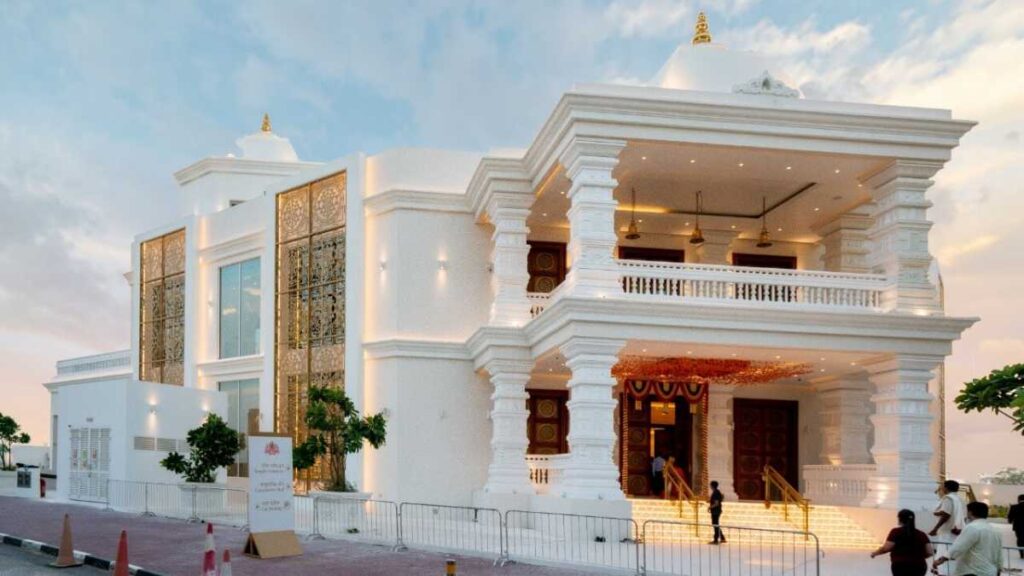
Personal Stories and Memories
The temple complex has been a part of countless personal journeys, each story weaving into the fabric of its history. As the temple prepares to close its doors in Bur Dubai, these stories and memories become invaluable treasures, capturing the essence of what the temple has meant to the community.
Devotees’ Reflections: End of an Era: For many devotees, the temple has been a constant presence in their lives, a place of solace, celebration, and spiritual connection. The closure marks the end of an era, evoking a mix of nostalgia and gratitude for the years spent in its comforting embrace.
Embracing Change: Perspectives on the Move: While the move to Jebel Ali brings a sense of loss for what is being left behind, it also carries a sense of hope and anticipation for the future. The community’s response to this change reflects a collective resilience and adaptability, embracing the new while honoring the old.
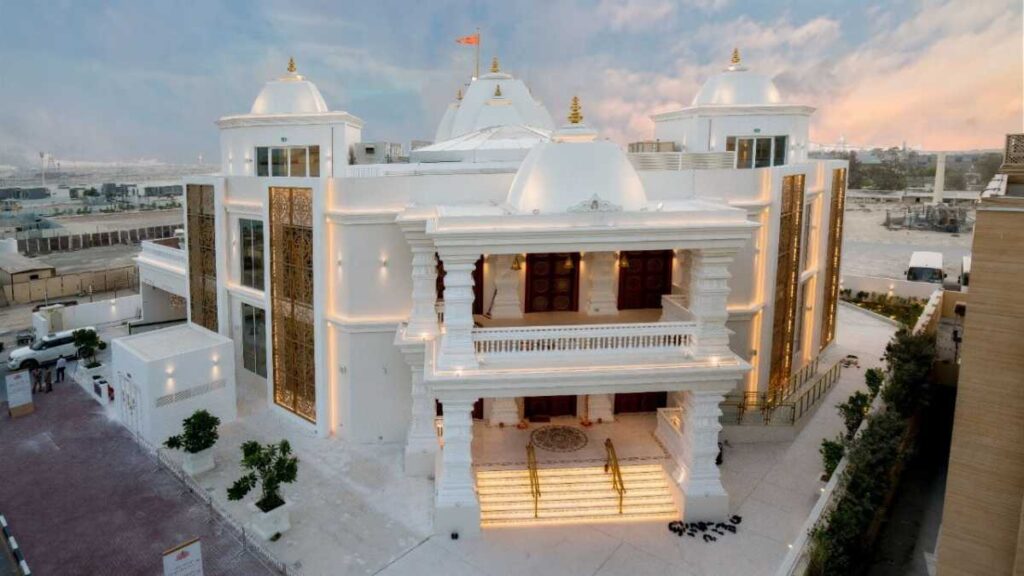
The Architectural Marvel: Then and Now
The transition from Bur Dubai to Jebel Ali is not just a change in location but also a shift in architectural ethos. The contrast between the old and the new temple reflects the evolution of religious architecture, mirroring the community’s journey.
Bur Dubai Temple: A Historical Landmark: The Bur Dubai temple, with its traditional design and intimate setting, has been a historical landmark. Its architecture speaks of a bygone era, embodying the simplicity and warmth that has welcomed generations of worshippers.
Jebel Ali Temple: A Blend of Tradition and Modernity: In contrast, the new temple in Jebel Ali is set to be a blend of traditional motifs and modern design principles. It promises to be an architectural marvel, combining the grandeur of traditional Hindu temples with the sleekness of contemporary design, creating a space that is both awe-inspiring and welcoming.
The Future of Religious Spaces in Dubai
As Dubai continues to grow and evolve, the future of religious spaces in the city looks promising. The transition of the Bur Dubai temple to Jebel Ali is indicative of a broader trend towards creating religious spaces that are not only spiritually significant but also architecturally innovative and socially inclusive.
Innovations in Religious Architecture: The architectural landscape of religious spaces in Dubai is witnessing a shift towards innovative designs that respect traditional elements while incorporating modern aesthetics and functionality. This evolution reflects a deeper understanding of the role of religious spaces in a rapidly modernizing world.
The Role of Religion in a Multicultural City: In a multicultural city like Dubai, religious spaces play a crucial role in fostering community bonds and cultural understanding. They serve as platforms for intercultural dialogue and mutual respect, contributing to the city’s reputation as a melting pot of cultures and beliefs.
Contact and Location of New Temple
Phone: 056 501 8951/ 050 659 8369 | hindutempledubai.com

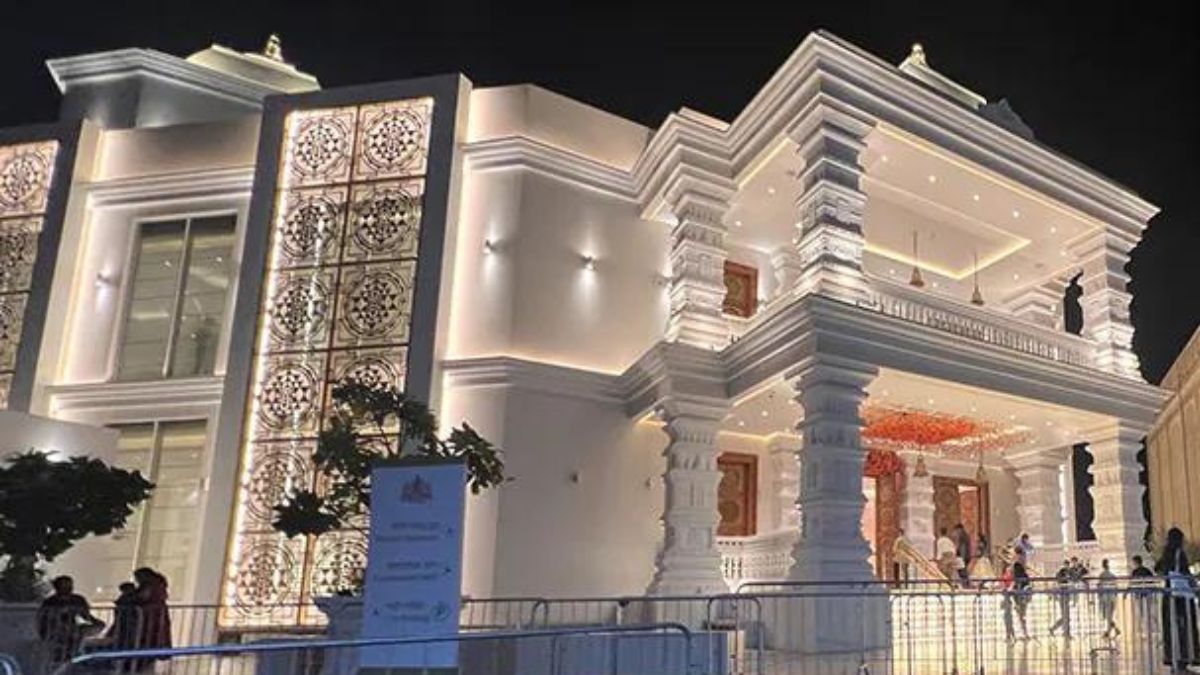

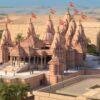

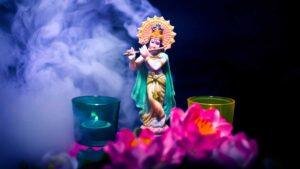












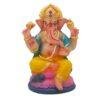
Add comment